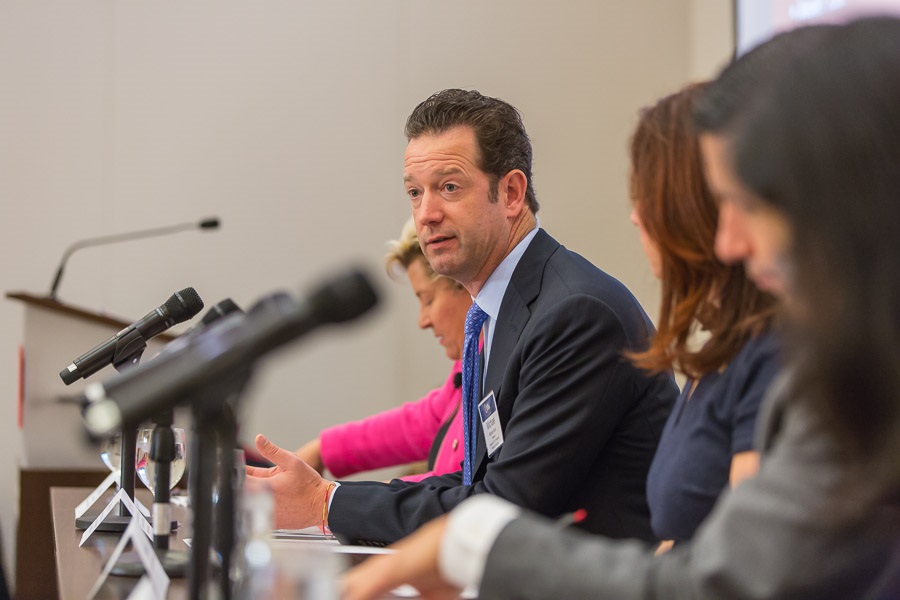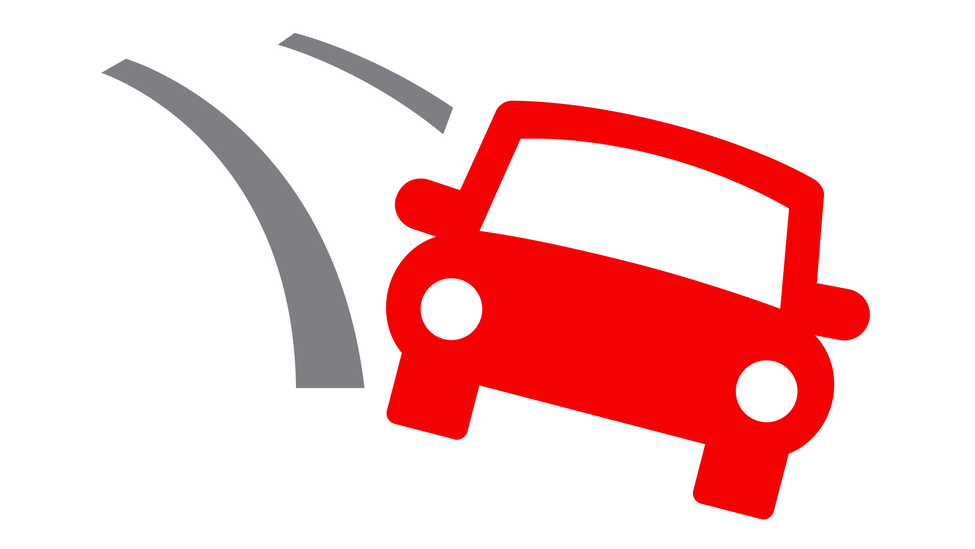Everyone Can Play a Role in Preventing Distracted Driving

When you rent a vehicle do you familiarize yourself with the controls, such as the lights and windshield wipers, while you’re driving? Do you ever eat a burger or have a cup of coffee while you’re behind the wheel? All of these behaviors can be distractions that force drivers to take their eyes off the road.
“Distraction isn’t just about texting,” said Pete Gulbrandsen, Vice President of National Auto at Travelers. “It’s really anything that distracts you; even just your brain wandering.” Gulbrandsen is one of several Travelers leaders taking part in the Travelers Institute Every Second Matters symposium series, which is raising awareness about distracted driving risks through events on college campuses across the United States and Canada.
“Being aware of your own distracted driving habits is important,” said Joan Woodward, President of the Travelers Institute and Executive Vice President of Public Policy at Travelers. “Studies have shown that most people believe that distracted driving is not their problem; it’s the other person’s problem.”
Thirty-two percent of respondents to the 2018 Travelers Risk Index indicated that they were concerned about getting into a collision because of their own distracted driving, while 78 percent worried about getting into a crash due to someone else’s distracted driving.1
Gulbrandsen said that after decades of declines in the frequency of motor vehicle collisions, the rate has increased in recent years. “The National Safety Council reported more than 40,000 U.S. traffic fatalities in 2017, even as we’re seeing more and more safety technology available on the road,” he said.
Michael Klein, Executive Vice President and President, Personal Insurance, and Head of Enterprise Business Intelligence & Analytics at Travelers, said Travelers launched the Every Second Matters initiative to encourage smart driving behaviors, to help keep the roads safe and auto insurance affordable for consumers and businesses.
“We’re visiting college campuses because vehicle collisions have a cost. Oftentimes that cost, the loss of life, the injuries and the damage to vehicles and properties, are preventable,” said Klein. “We’re trying to help find ways to prevent those crashes from happening in the first place.”
One of those ways is speaking up when a driver is using a mobile device, eating or engaged in another form of distraction, said Klein, pointing to a recent survey that found drivers are more likely to look at their phones while driving alone, than when they’re with family or friends.2
“So I think there is something to the peer pressure and stigmatizing distracted driving,” said Klein, urging drivers to think about the safety of others when they’re on the road.
“Are you thinking about the family in the other car?” he asked. “That ought to be incentive for all of us to do the right thing. Pay attention and remember that every second matters."
1Travelers, 2018 Travelers Risk Index
2ORC International, Online Omnibus Study, conducted April 27-30, 2017.

Michael Klein, Executive Vice President and President, Personal Insurance, and Head of Enterprise Business Intelligence & Analytics at Travelers speaks to students at North Carolina State University about distracted driving.
Distracted driving statistics
See how much distracted driving puts you and others on the road at risk.

Learn more (Opens in a new window)
Travelers is proud to sponsor the public television documentary "3 Seconds Behind the Wheel." The documentary follows the lives of eight drivers, over six months, and shows the true behaviors and consequences behind distracted driving.

Leading by example to help prevent employee distracted driving
Travelers' Chris Hayes discusses how employers and employees can reduce distracted driving instances.
(SPEECH)
[MUSIC PLAYING]
(DESCRIPTION)
How can employers model responsible driving behavior? A man in a dark suit stands outside in a walkway. Text: Chris Hayes, Second Vice President - Transportation, Risk Control, Travelers.
(SPEECH)
CHRIS HAYES: Employees will follow the leadership in what they do from a risk management standpoint, a safety standpoint. So documenting a distracted driving policy is one thing. Consistently following it is something else. So if I'm an employee and my manager calls me and expects that I'll take the call while driving, that sets the tone. That says that while we have one written rule, the reality is something else.
Any time someone is driving on behalf of another organization, a company, a nonprofit, a university, they are driving on behalf of that organization, and so the liability is carried with that driver, even if they're driving their own vehicle. And it's not just the liability, it's also the employee’s safety. The leading source of workplace injuries and the leading source of workplace fatalities is driving on the job.
[AUDIO LOGO]
(DESCRIPTION)
The Travelers red umbrella logo sits inside a stopwatch icon. Text: Every Second Matters (service mark). Travelers Institute (registered trademark). Travelers.
(SPEECH)
ANNOUNCER: Learn more at travelersinstitute.org.